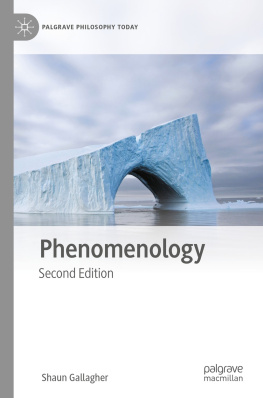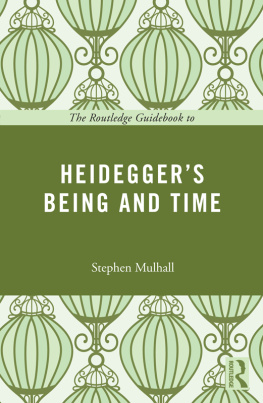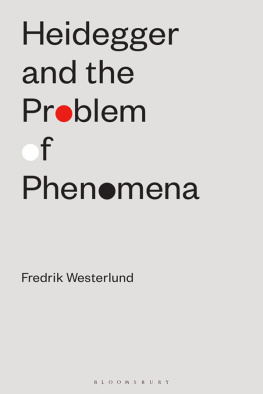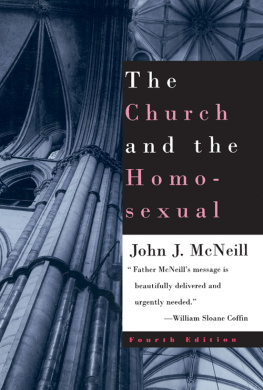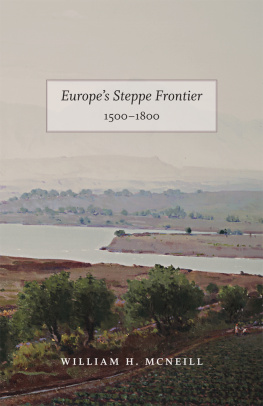William McNeill - The Fate of Phenomenology: Heideggers Legacy
Here you can read online William McNeill - The Fate of Phenomenology: Heideggers Legacy full text of the book (entire story) in english for free. Download pdf and epub, get meaning, cover and reviews about this ebook. year: 2020, publisher: Rowman & Littlefield, genre: Religion. Description of the work, (preface) as well as reviews are available. Best literature library LitArk.com created for fans of good reading and offers a wide selection of genres:
Romance novel
Science fiction
Adventure
Detective
Science
History
Home and family
Prose
Art
Politics
Computer
Non-fiction
Religion
Business
Children
Humor
Choose a favorite category and find really read worthwhile books. Enjoy immersion in the world of imagination, feel the emotions of the characters or learn something new for yourself, make an fascinating discovery.

- Book:The Fate of Phenomenology: Heideggers Legacy
- Author:
- Publisher:Rowman & Littlefield
- Genre:
- Year:2020
- Rating:5 / 5
- Favourites:Add to favourites
- Your mark:
- 100
- 1
- 2
- 3
- 4
- 5
The Fate of Phenomenology: Heideggers Legacy: summary, description and annotation
We offer to read an annotation, description, summary or preface (depends on what the author of the book "The Fate of Phenomenology: Heideggers Legacy" wrote himself). If you haven't found the necessary information about the book — write in the comments, we will try to find it.
The Fate of Phenomenology: Heideggers Legacy — read online for free the complete book (whole text) full work
Below is the text of the book, divided by pages. System saving the place of the last page read, allows you to conveniently read the book "The Fate of Phenomenology: Heideggers Legacy" online for free, without having to search again every time where you left off. Put a bookmark, and you can go to the page where you finished reading at any time.
Font size:
Interval:
Bookmark:
William McNeill is professor of philosophy at DePaul University in Chicago. He is translator or co-translator of numerous books by Heidegger and author of The Glance of the Eye: Heidegger, Aristotle, and the Ends of Theory (1999) and The Time of Life: Heidegger and thos (2006).

EBSCO Publishing : eBook Collection (EBSCOhost) - printed on 10/19/2020 2:10 AM via MCGILL UNIV
AN: 2522891 ; William McNeill.; The Fate of Phenomenology : Heidegger's Legacy
Account: s1226075
New Heidegger Research
Series Editors:
Gregory Fried, Professor of Philosophy, Boston College, USA Richard Polt, Professor of Philosophy, Xavier University, USA
The New Heidegger Research series promotes informed and critical dialogue that breaks new philosophical ground by taking into account the full range of Heideggers thought, as well as the enduring questions raised by his work.
Titles in the Series
After Heidegger?
Edited by Gregory Fried and Richard Polt
Correspondence 19491975
Martin Heidegger, Ernst Jnger, translated by Timothy Quinn
Existential Medicine
Edited by Kevin Aho
Heidegger and Jewish Thought
Edited by Micha Brumlik and Elad Lapidot
Heidegger and the Environment
Casey Rentmeester
Heidegger and the Global Age
Edited by Antonio Cerella and Louiza Odysseos
Heidegger Becoming Phenomenological: Preferring Dilthey to Husserl, 191625
Robert C. Scharff
Heidegger in Russia and Eastern Europe
Edited by Jeff Love
Heideggers Gods: An Ecofeminist Perspective
Susanne Claxton
Making Sense of Heidegger
Thomas Sheehan
Proto-Phenomenology and the Nature of Language
Lawrence J. Hatab
Heidegger in the Islamicate World
Edited by Kata Moser, Urs Gsken and Josh Michael Hayes
Time and Trauma: Thinking Through Heidegger in the Thirties
Richard Polt
Contexts of Suering: A Heideggerian Approach to Psychopathology
Kevin Aho
Heideggers Phenomenology of Perception: An Introduction, Volume I
David Kleinberg-Levin
Confronting Heidegger: A Critical Dialogue on Politics and Philosophy
Edited by Gregory Fried
Proto-Phenomenology, Language Acquisition, Orality and Literacy: Dwelling in Speech II
Lawrence J. Hatab
Transcending Reason: Heideggers Transformation of Phenomenology
Edited by Matthew Burch and Irene McMullin
The Fate of Phenomenology: Heideggers Legacy
William McNeill
Published by Rowman & Littlefield
An imprint of The Rowman & Littlefield Publishing Group, Inc.
4501 Forbes Boulevard, Suite 200, Lanham, Maryland 20706
www.rowman.com
6 Tinworth Street, London SE11 5AL, United Kingdom
Copyright 2020 by William McNeill
All rights reserved . No part of this book may be reproduced in any form or by any electronic or mechanical means, including information storage and retrieval systems, without written permission from the publisher, except by a reviewer who may quote passages in a review.
ISBN: HB 978-1-78660-890-1
PB 978-1-78660-891-8
British Library Cataloguing-in-Publication Information Available
Library of Congress Cataloging-in-Publication Data Is Available
ISBN 978-1-78660-890-1 (cloth: alk. paper)
ISBN 978-1-78660-891-8 (pbk: alk. paper)
ISBN 978-1-78660-892-5 (electronic)
 The paper used in this publication meets the minimum requirements of American National Standard for Information SciencesPermanence of Paper for Printed Library Materials, ANSI/NISO Z39.48-1992.
The paper used in this publication meets the minimum requirements of American National Standard for Information SciencesPermanence of Paper for Printed Library Materials, ANSI/NISO Z39.48-1992.
, , , . Plato, Seventh Letter
This set of short reflections cannot and does not claim to offer a full or systematic account of Heideggers complex relationship to phenomenology. It is intended, rather, as a provocation to reflect on the fate of phenomenology in Heideggers philosophizing, and in particular, on the questions that animate this inquiry: Is the later Heidegger of the 1930s onward still thinking phenomenologically, as is often claimed? If so, in what sense? Why, in that case, does he no longer appeal to phenomenology as the method of his thinking? Has phenomenology been left behind or abandoned? Or is it somehow retained, but in a transformed or radicalized sense? Yet why, then, does he no longer use the term phenomenological to characterize his later thinking? And last but not least, what are we to make of the return of an appeal to phenomenology in his late career, in the work of the 1960s and 1970s, when he claims to be undertaking what he calls a phenomenology of the inapparent?
The answers to these questions, as we shall see, are not straightforward and demand consideration of multiple perspectives. We begin in chapter 1 by examining Heideggers early confrontation with Edmund Husserl, the founder of phenomenology, in relation to Husserls challenge to philosophy to proceed to the things themselves. What the things themselves should be immediately became a bone of contention for Heidegger, who as early as the emergency war semester of 1919 was challenging the failure of Husserls phenomenology to pose phenomenologically the question of the phenomenal mode of Being of the concrete entity to which intentionality belongs. Heidegger criticizes Husserls conception of consciousness for being a theoretical construction that abstracts from concrete worldly experience and from the historicality of factical life. It is life in this concrete, historical sense of Being-in-the-world (as opposed to a consciousness that stands over against the world) that indeed constitutes for Heidegger the primordial phenomenon ( Urphnomen ) of phenomenology. And the method of phenomenology cannot, therefore, simply consist in learning to see what is given in originary intuition, as articulated in Husserls principle of principles, but must entail the hermeneutic approach that Heidegger develops in terms of the destruction or dismantling ( Destruktion ) of historically determined presuppositions, and in terms of formal indication that points into the concretion of factical life in the increasing intensification of itself.
The second chapter examines Heideggers articulation of phenomenology in Being and Time in light of a dual impetus: the discovery of categorial intuition in Husserls sixth Logical Investigation , and the retrieval of a forgotten resource in Greek philosophy, especially in Aristotle, namely, the understanding of (commonly translated as truth) as the self-showing of phenomena, their coming into unconcealment. In Being and Time , Heidegger develops his conception of phenomenology in terms of the Greek roots of the word: and . is derived from the verb , a middle-voiced form meaning for something to show itself. A phenomenon is accordingly that which shows itself in and of itself. The of phenomenology is , letting happen, letting something be seen in a particular regard. Phenomenology, understood in this Greek sense, has the meaning of to let that which shows itself be seen from itself, just as it shows itself from itself. Yet the of phenomenology is thus hermeneutic, a mode of interpretation, of letting something be seen as something. Whereas the something or primary theme of Husserls phenomenology was consciousness and its intentionality, for Heidegger it becomes the Being of beings, as that which is primarily concealed and must thus be wrested from concealment. Phenomenology as ontology, conceived in its hermeneutic inflection that Heidegger no doubt developed under the influence of Diltheys life philosophy, must unfold as a destruction of the history of ontology, dismantling the concealments brought about by that history and bringing the meaning of Being to full transparency in the understanding that belongs to factical existence, to Dasein as Being-in-the-world. This radicalization of phenomenology not only seeks to overcome what Heidegger criticizes as the ahistoricality that blinds and limits Husserls phenomenology, but also engages and develops phenomenology not in its actuality as a philosophical movement or direction, but as a possibility that must be open to its own self-transformation. Yet, this self-transformation of phenomenology not only would make itself felt as the radicalization of Husserlian phenomenology that Heidegger accomplished but also would affect Heideggers own inflection of phenomenology as articulated in Being and Time . Heideggers radicalization of phenomenology, it turns out, was not quite radical enough: It did not quite get to the root of the matter, of the Sache . That would require a further step, one that Heidegger would begin to venture only in 1930.
Font size:
Interval:
Bookmark:
Similar books «The Fate of Phenomenology: Heideggers Legacy»
Look at similar books to The Fate of Phenomenology: Heideggers Legacy. We have selected literature similar in name and meaning in the hope of providing readers with more options to find new, interesting, not yet read works.
Discussion, reviews of the book The Fate of Phenomenology: Heideggers Legacy and just readers' own opinions. Leave your comments, write what you think about the work, its meaning or the main characters. Specify what exactly you liked and what you didn't like, and why you think so.


